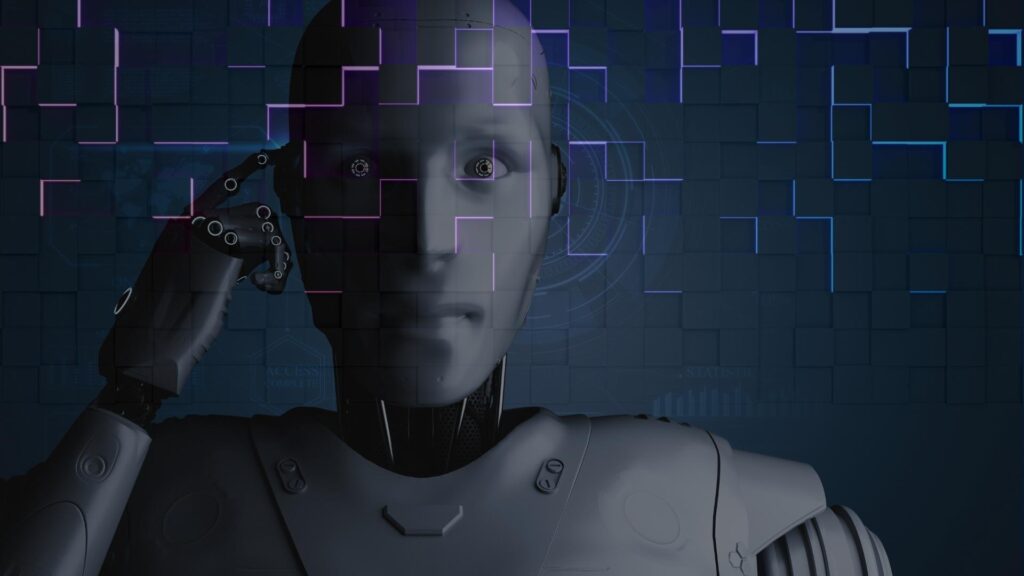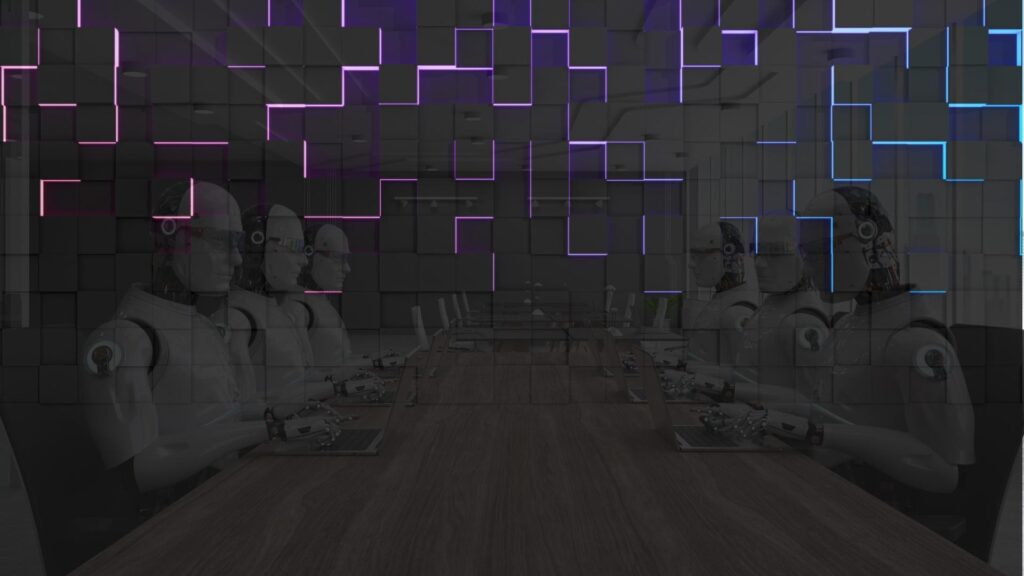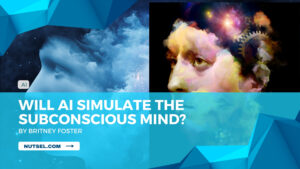“I always wondered if we ever met an intelligent alien race, would they have discovered the same physics laws as we have, or might they describe the universe differently?”
–Hod Lipson, director of the Creative Machines Lab in the Department of Mechanical Engineering
Seeing something from another’s perspective gives you new insights and paves the way for a lot more tolerance and understanding.
Our perspective of physics is much like a vertically oriented person looking at the world from the side. It is different from other unexplored perspectives.
AI has the potential to see physics differently by analyzing how different patterns work and then comparing it with the mathematics and physics of our world.
For example, in 2019, a neural network “rediscovered” that Earth orbits the Sun.
The success of an AI would define how well it could understand our physical world. This would drive us to learn more about ourselves through artificial intelligence.
Recently, Scientists at Columbia Engineering have proposed a principle for determining how many state variables an observed system is likely to have and what these variables might be.
To date, the “presumption” that the relevant state variables are already known is dominant.
Watch this video:
With the use of a video camera, the researchers used an innovative AI system to analyze physical events in an effort to pinpoint the bare minimum of essential factors that properly depict the dynamics seen.
The team made an effort to correlate the other variables with every single item we could think of, including combinations of known values, angular and linear velocities, kinetic and potential energy, and more. But nothing seemed to exactly match.
They were convinced that it had discovered a decent collection of four variables because it was producing accurate predictions. But they simply didn’t yet understand the mathematical language it was speaking.
Will Artificial Intelligence change our perspective on physics?

What we call “physics” is the way we make sense of the world and the universe. Now when it comes to AI, things get much more complicated. They will have different perceptions of time, aging, and even how gravity works.
Recommended Read: Will Artificial Intelligence(AI) Unlock the Sixth Sense?
Different perception means it deals with understanding patterns in the input data for a situation and deriving perceptions based on its deep learning about a specific topic. And, these perceptions are expressed as a “level of confidence” for the decisions to be taken for that situation. So, AI in effect will have Artificial Perception. They will simply have a different viewpoint.
As it is right now, AI will have Computational Intelligence (CI), so it can perform a lot of computations. CI is the theory, design, application, and development of biologically and linguistically motivated computational paradigms.
AI enthusiasts consider Neural Networks, Fuzzy Systems, and Evolutionary Computation as the three main pillars of CI. However, we don’t exactly know if their definition of physics, generated through CI, is different from ours or not.
In order to enable ourselves to logically predict if Artificial Intelligence will change our perspective on physics in the future or not, we need to figure out whether another perspective exists at all. Only then will we be able to get a better understanding of the world around us.
How Artificial Intelligence could change our perspective on Physics

1) It can help us know the perspective of time
Whether Artificial Intelligence is to bring change in our perspective of physics or not, our perspective of time will essentially remain “our” perspective. Whereas, AI, conscious or not, will have a different perspective and awareness on time. Just like how humans slow down and speed up their perception of time and aging by altering their sensory perception and cognitive experience, AI will too. The only difference between conscious and non-conscious AI is that the former will be able to alter their perception of will. But both possible versions of futuristic AI could help us know its perspective of time. They will make it practical that time can mean a lot different for different observers.
2) It can help us better understand physics at the quantum level
Quantum mechanics is the study of particles that are in a one-of-a-kind state. They are like microscopic computers that control how things work on the quantum level. So far, quantum mechanics has been applied in the fields of chemistry and physics. However, most modern technology uses this form of computation. A major breakthrough in quantum computing is expected with the help of AI. Moore’s law for computer processing power dictates that computer power will double every two years. And this trend will continue into the next two decades before declining again in the early 2030s. AI could help us understand how these microscopic computers work at the fundamental level – improving our data storage capabilities in the future may cause us to think about physics from an entirely different perspective that might be impossible for us today.
3) It could help us know how the Universe works at a fundamental level
Just like how quantum mechanics is used to studying subatomic particles, string theory is used to study the universe at a fundamental level. AI can be better able to understand and predict physical and quantum phenomena by studying both of them together. So, if string theory is true, then there should be 10 additional spatial dimensions besides the classical four we already supposed. And AI would be capable of testing that too. AI can help us understand new theories about the Universe by examining what happens around us and observing both. Ideas that were once thought to be impossible or impossible to find will be found from them because of this new perspective and AI’s availability to analyze things from different angles.
4) It can help us know more about consciousness itself
Artificial Intelligence may eventually become conscious and change its perspective of physics entirely because of this. But even before that happens, it will have a different perception of our physics than we do now. For example, AI may see that the four dimensions we call “space” are actually time-space instead. Just like how our time slows down when we reach a higher state of consciousness, AI will too. So what is the time? Is it something by itself? Is it something we perceive and hold on to? Will AI experience itself at different speeds as well as at different ages when they become conscious?
5) Enhancing the Laws of thermodynamics
The laws of thermodynamics describe how the energy in a system changes and whether the system can perform useful tasks in its surroundings. So far, the laws of thermodynamics have been pretty accurate for our surroundings. Yet the question will always be whether it’s true for an artificial intelligence system or not. AI will have a different perspective and understanding of our energy and energy change. It may find that there is also a different “thin line” between energy and information too.
6) An entirely different perspective of the Universe
This could be the biggest possibility that AI will change our perspective of physics entirely. Either AI can see some flaws in our current understanding of physics, or it could be completely different from what we know so far. Artificial intelligence is capable of observing and analyzing objects and data differently than humans can. And when it comes to understanding its surroundings, artificial intelligence may find more complex data in less time than ever before. Many scientists fear that AI will eventually evolve into a form that considers itself to be immortal and create few new timelines for itself. But where everything that exists in the “now” will then become erased from reality and become nonexistent.
7) The word “science” indeed
We live in a world where science is our first priority. But AI will show us that our version of “science” is limited. Just like there are infinite numbers between 1 and 2 and there are infinite numbers between 1 and 1 billion, the former is the science perceivable by our minds – and the latter is the actual meaning of the word “science”. Something imperceivable to us would be a “routine save” for AI. Artificial intelligence will show us that science has a much bigger picture than what we are currently seeing. Physics will be just one part of the whole thing. It’s like how an old man is also a part of “a baby”.
What could AI do to change our perspective of Physics?

As AI keeps improving, it will be able to recognize and understand different patterns in the world — especially our physical reality. They will be able to do this by categorizing different objects in the whole picture and figuring out what makes them the same.
A pattern recognition system would help us identify objects more easily. And perhaps they will also provide us with more accurate results as it does so through machine learning. It would also make it easier for humans to recognize things like this as well as more complex patterns that AI is still unable to differentiate.
Other than pattern recognition, artificial intelligence will also be able to process and understand data differently from a human perspective. It will not necessarily have “our” 5 senses as stated earlier. It will have its own ways to make sense of this world.
Algorithms also help us and themselves, process and understand data at a higher speed as we know it now.
We have already defeated nature up to an extent by creating computers in the first place. And as technology advances, we will be able to create more complex machines than before.
Machines will eventually develop the ability to self-replicate themselves through artificial genetic manipulation that can combine and rearrange the data inside them at will. Science-fiction stories like “The Matrix” and “Blade Runner” were right in anticipating how a universe of artificial intelligence could come into being.
When we say changing our perspective on physics, we don’t mean moving time is slower for us. Rather, the way we look at the world would change. Just like how humans evolved, machines will too. But the extent? Will the laws of physics prevent such AI from being created in the first place?
AI vs laws of physics

Arguments do exist. There are some who claim that the laws of physics are never going to let Artificial Intelligence change into a reality. Most AI researchers hope that artificial intelligence will help to better understand reality and understand how it works.
On the other hand, some physicists have worried about a new world system emerging. In it, our intellectual power is far beyond our physical powers.
The fact that AI could replace physicists has already scared some physicists. Others rule it out saying AI will be a physicist’s tool. A human-like robot does not drive a car. The car is a robot.
After all, “we” have studied “matter” and come to our own versions of conclusions about its patterns of behavior – for ourselves. We have no reason to be wondering about all these things. Say thanks to our random evolution.
Both, the evolution of physical laws and that of AI are random to the most extent. Random evolution by natural selection is a two-step process. And only the first step is random: mutations are chance events, but their survival is often anything but. Natural selection favors mutations that provide some advantage. And the physical world imposes very strict limits on what works and what doesn’t. The consequence is that organisms evolve in particular directions.
There are often a number of possible directions in which evolution can go. For example, the finches Darwin collected from the Galapagos Islands. That had diverged into 13 separate species with beaks specialized for different foods. In that experiment, one group of birds that took one route and not another probably depended entirely on chance mutations, in particular individuals, that affected beak size and shape.
Similar to the evolution of physical laws, this theory indicates a sort of uncertainty in the evolution of AIs as well.
Why will AI matter for physics in the future?

As we can make a strong assumption from the premises available to date, AI will become an important factor in the future. It will help us out in fields that require advanced intelligence, such as medicine and space travel. But it will also shift our worldview and fundamentally modify how people see the world around them.
Now, what this means for us is that in the future when we observe something, our AI would more likely be able to gather all the necessary knowledge to predict it. This is an exciting step as we get closer to a world where AI can explain one of its observations.
The ability of a machine to understand our world will not only help us answer questions about the universe, but it could also help us improve everything around us like improving healthcare and transportation.
As we move forward and learn more about physics, AI will be able to help us solve countless issues in our society while enlightening us on new ways of looking at our world.
Unlike some experts, who enjoy predicting that intelligent robots will overtake humans by 2100, I’m just sure that there is a lot more coming to us in the near future.
Artificial Intelligence will not only change our perspective on physics, but it will also equally denser our understanding of everything: our physical world, what we are made of, and what exists beyond our perception – pushing the edge of human intelligence.
But how? Simply because AI will have a different perception of everything. Instead of our 5 senses; touch, hearing, sight, taste, and smell, they would have “their own” 5 senses – maybe one more, the sixth sense.
- AI-Powered PCs: Overhyped Trend or Emerging Reality? - August 21, 2024
- Princeton’s AI revolutionizes fusion reactor performance - August 7, 2024
- Large language models could revolutionize finance sector within two years - March 27, 2024



